Paving a smoother way on the 710 Freeway
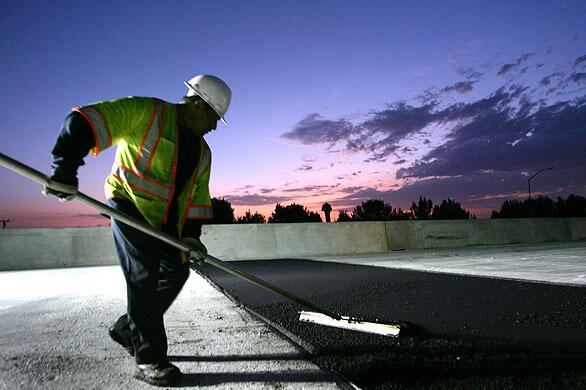
A worker sweeps the new asphalt surface on a portion of the 710 Freeway in Long Beach. The I-710 Long Life Pavement Project, as Caltrans calls it, began in 2001, is scheduled for completion in the next five years and is a projected to cost $650 million. (Stefano Paltera / For the Times)
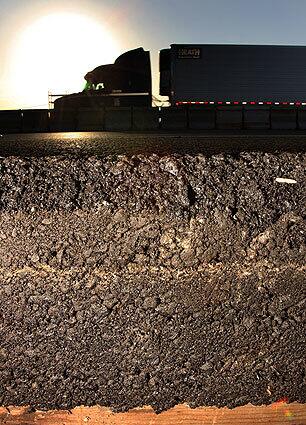
A truck drives on a newly repaved portion of the 710 Freeway, where a nearly foot-thick layer of various mixes of asphalt creates a smoother ride. (Stefano Paltera / For The Times)
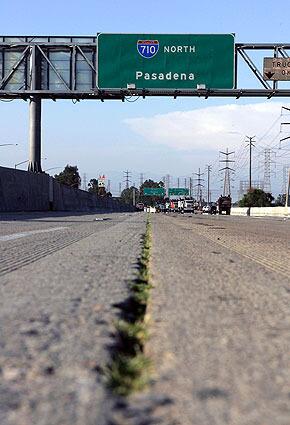
The first segment of the 710 Freeway opened in 1952. Since then the concrete roadway has degraded from the increasing traffic, especially heavy trucks going to and from the ports, resulting in a bone-jarring ride. (Stefano Paltera / For the Times)
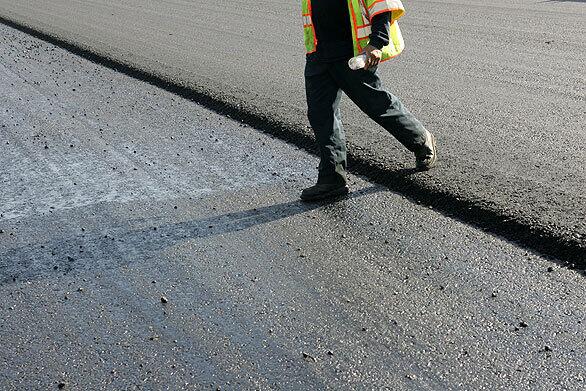
A worker steps across new asphalt. (Stefano Paltera / For The Times)
Advertisement
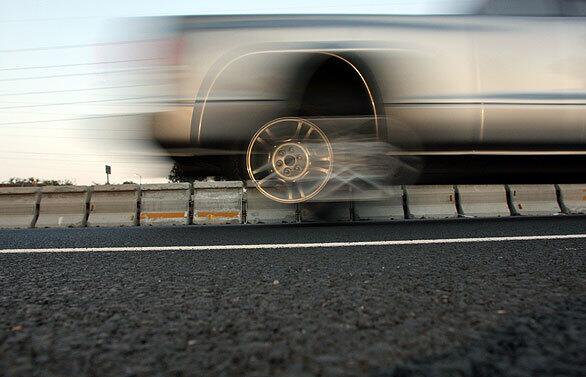
A car whizzes by on a newly repaved portion of 710 Freeway. Rubber, much of it from recycled tires, mixed into the asphalt helps mute car noise. (Stefano Paltera / For The Times)
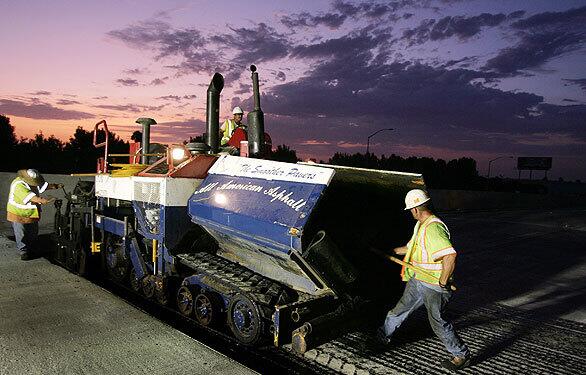
Work continues on the I-710 Long Life Pavement Project in







